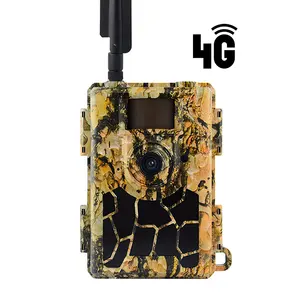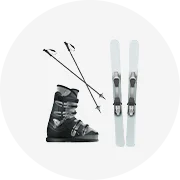What are Fishing Cameras
Fishing cameras are specialized devices designed for anglers to visually explore and monitor underwater environments. These cameras are valuable tools for anyone interested in fishing, from casual hobbyists to professional fishers, as they provide a unique insight into the aquatic world. Fishing cameras help to identify the presence of fish, examine the underwater terrain, and assess the behavior of marine life, enhancing the fishing experience by making it more efficient and enjoyable.
The principle behind fishing cameras is fairly straightforward: they are waterproof and often come with rugged housings to withstand the pressures of underwater use. Equipped with high-resolution lenses and powerful lights, they capture clear images and videos even in murky waters. Some models also come with features like night vision capabilities, enabling use in low-light conditions. The footage from these cameras can be transmitted to a monitor on the boat or shore, allowing fishermen to make real-time decisions based on what they observe beneath the surface.
Fishing cameras vary in complexity and functionality. Some are simple, offering basic video feeds, while others are more advanced, providing options such as GPS integration, sonar technology, and recording capabilities. The use of fishing cameras can significantly improve catch rates by revealing hotspots and the types of bait fish are responding to. Additionally, they serve as an educational tool, offering insights into the underwater ecosystem and promoting environmentally responsible fishing practices.
Types of Fishing Cameras
Fishing cameras come in various forms, each designed with specific features to suit different underwater conditions and user preferences. Understanding these types can help buyers select the ideal camera for their fishing endeavors.
Handheld Fishing Cameras: These portable devices are perfect for anglers who prefer a mobile solution. They are often compact and easy to maneuver, allowing fishers to quickly deploy them into the water for a quick peek beneath their boats or through holes when ice fishing.
Mounted Fishing Cameras: Mounted options provide a stable view under the water and can be attached to boats or docks. They're ideal for continuously monitoring a particular spot without having to hold onto the camera. This type is often favored by those who fish in a single location for extended periods.
360-Degree Fishing Cameras: Offering panoramic views of the underwater environment, these cameras capture everything around them. They're particularly useful for getting a comprehensive layout of the lake bed or reef structure.
Wireless Fishing Cameras: These eliminate the need for cables running from the camera to the display unit. Wireless cameras provide greater freedom of placement and are less obtrusive to fish due to their minimal setup.
Ice Fishing Cameras: Specially designed for cold environments, ice fishing cameras often come with additional insulation and heating elements to prevent freezing. They're also equipped with features that optimize performance in icy waters.
Each type has its common use cases; handhelds are great for quick scouting, mounted units are excellent for surveillance, 360-degree models excel in mapping environments, wireless ones offer convenience and portability, and ice fishing cameras are tailored to perform in extreme cold.
How to choose Fishing Cameras
The selection of a fishing camera should be based on specific needs considering the type of fishing activity, environmental conditions, and desired features. Here’s how businesses can make informed decisions when purchasing wholesale fishing cameras:
Environment Suitability: Choose a camera that matches the intended fishing environment—whether it's freshwater lakes or saltwater oceans. For ice fishing scenarios, select cameras designed to operate effectively in sub-zero temperatures.
Camera Features: Look for features like night vision or wide-angle lenses if you require detailed imaging over a large area or during low-light conditions. Waterproofing is essential for all underwater use while additional functionalities such as app control or motion detection might be pertinent for certain applications.
Detection Range: The detection range is crucial if you need to cover large areas or specific depths. Make sure that the chosen camera's range aligns with how far you need visibility underwater.
Power Source: Consider how your cameras will be powered—will you have access to a power source on your boat or dock? If not, battery-powered options might be necessary.
Data Storage Options: If recording is essential for your use case (such as reviewing footage later), look for cameras that have ample data storage options like SD card slots or compatibility with external recording devices.
Customization Needs: For businesses looking for branded products or specific software functionalities, identify suppliers offering ODM (Original Design Manufacturing) services that allow customization according to your requirements.
By taking these considerations into account along with other factors such as durability and ease of use, businesses can choose suitable fishing cameras that meet their commercial needs efficiently.
Best Fishing Cameras on Alibaba.com
Alibaba.com offers a wide array of fishing cameras suitable for various angling activities and environments. With an extensive selection from numerous suppliers around the globe, Alibaba.com stands out as an ideal marketplace for businesses looking to source quality fishing equipment in bulk. Whether you're outfitting a professional charter service or stocking up your retail store with the latest angling tech-gadgets, Alibaba.com caters to your business needs by providing access to a diverse range of products.
The platform's user-friendly interface allows buyers to filter through options based on specific functions such as waterproofing, night vision capabilities, detection range, and more—streamlining the search process significantly. Furthermore, Alibaba.com is not just about providing variety; it's about ensuring secure transactions too. With services like Trade Assurance, businesses can place orders confidently knowing that their payments are protected until delivery is confirmed complete.
Alibaba.com's commitment extends beyond facilitating transactions; it aims at fostering global trade relationships by providing support in multiple languages and mobile-friendly buying experiences. This dedication has made Alibaba.com not just a marketplace but a partner in global commerce that empowers small and medium-sized businesses with tools necessary for growth in an ever-expanding digital economy.
Common FAQs for Fishing Cameras
What type of fishing camera is best for murky water conditions?
For murky water conditions, it's best to choose a fishing camera with high-resolution imaging and powerful lighting features, such as LED or infrared lights, to penetrate the dark waters and provide clearer visuals.
How important is the waterproof rating for a fishing camera?
The waterproof rating of a fishing camera is crucial as it indicates the depth at which the camera can operate safely. Look for cameras with a high IP rating to ensure durability and performance underwater.
Can wireless fishing cameras interfere with other electronic equipment on my boat?
Wireless fishing cameras typically operate on specific frequency bands that should not interfere with other marine electronics. However, always check the device specifications to confirm compatibility and avoid potential disruptions.
How does night vision work in underwater fishing cameras?
Night vision in underwater fishing cameras works by using infrared light or low-luminance technology to illuminate the camera's field of view, allowing for visibility in dark or low-light underwater environments.
What should I look for in terms of battery life and power options for a fishing camera?
Consider fishing cameras with long battery life or those that offer versatile power options, such as rechargeable batteries or solar panels, to ensure continuous operation during extended fishing trips.
Are there fishing cameras that can record audio as well as video?
Some fishing cameras do come with built-in microphones that can record audio; however, underwater audio recording may not be as clear due to the properties of sound transmission in water.
What are the benefits of using a 360-degree fishing camera?
A 360-degree fishing camera provides a comprehensive view of the underwater environment, making it easier to spot fish and assess the terrain without having to reposition the camera frequently.
Is it possible to customize the software of a fishing camera for specific business needs?
Many suppliers offer customized support such as ODM services, which can include software reengineering to tailor the fishing camera's software according to specific business requirements.
What kind of maintenance do underwater fishing cameras require?
Underwater fishing cameras typically require regular cleaning to remove any debris or buildup, and it's important to inspect seals and housings for wear or damage to maintain their waterproof integrity.
How can I ensure the durability of a fishing camera in a saltwater environment?
For saltwater use, look for cameras constructed with corrosion-resistant materials such as stainless steel or specialized coatings that can withstand harsh marine conditions.











































 浙公网安备 33010002000092号
浙公网安备 33010002000092号 浙B2-20120091-4
浙B2-20120091-4